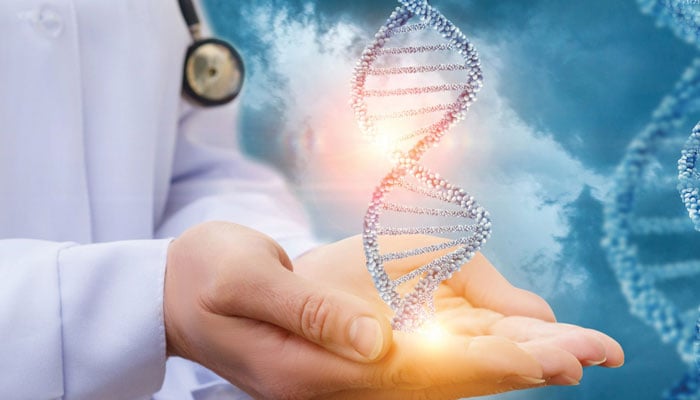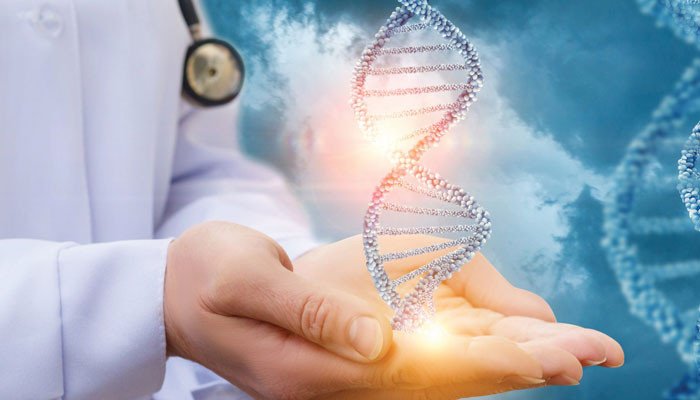
Next-generation sequencing (NGS), also known by other names such as high-throughput sequencing, is a revolutionary technology that has revolutionized the field of genetics and molecular biology. It refers to a collection of DNA or RNA molecules that can be used to determine the sequence of DNA or RNA molecules faster and on a much larger scale than conventional sequencing methods. It is a collection of techniques and technologies that can perform DNA or RNA sequencing faster and on a much larger scale than traditional sequencing methods.
NGS allows researchers and scientists to analyze the entire genome, i.e. all the genes or genetic material present in any one organism, and the transcriptome, i.e. all the miRNAs present in any one organism at any one time, and its In addition, other novel click acids are enabled to be sequenced in a cost-effective and efficient manner. Due to this, significant progress has been made in various scientific fields including genetics, personalized medicine, evolutionary biology and many more.
The nucleus in the cell of any organism contains DNA, which contains complete information about all the external characteristics of this organism and all the chemical factors that occur inside it. DNA is packed inside the nucleus as a tangled ball of thread, and specific parts of this thread called “genes” transfer their information to cells outside the nucleus by making RNA. The water contained in it, which is called “cytoplasm”, is sent to it where protein is made from RNA and then this protein causes all the operations in the organism to happen or not. DNA and RNA are also called nucleic acids, because the structure of these two molecules has an acidic chemical structure. However, if we know the sequence of these nucleic acids, we can get information about all the protein and non-protein molecules made in any organism.
In the mid-1980s, PCR (Polymerase Chain Reaction) technique appeared, in which millions to billions of copies of any gene in an organism can be produced. The entire gene is copied using what are called primers. In this way, by doing one to two and two to four, millions and millions of copies are produced.
PCR can similarly make billions of copies of one or more genes, but cannot make copies of all genes or the entire DNA. Next comes the NGS technique, which can copy the entire genome or entire DNA using a complete chemical process, and then use a computer program to determine the sequence of the entire DNA.
The NGS technique, which emerged between 1993 and 1995 and became commercially available in 2005, has several key features that allow rapid analysis of large amounts of genetic information. This technique allows researchers to generate large amounts of data in a relatively short period of time, at a very low cost per nucleotide, making large-scale DNA sequencing projects affordable for researchers with varying budgets. made more accessible.
Not only whole genomes can be sequenced by this technique, but also specific exomes (the entire sequence of protein-coding DNA) and, as mentioned earlier, RNA sequencing is also possible. Provides the most in-depth information by offering comprehensive identification of genetic variants, epigenetic changes in gene expression and other molecular features.
What this technique has done is revolutionize clinical diagnostics and personalized medicine by enabling the identification of genetic changes associated with diseases, thereby allowing doctors to tailor treatments to individual patients’ genetic profiles. has helped, greatly increasing human understanding of the evolutionary process. In addition, this technique is being applied in cancer, infectious disease surveillance, agriculture, forensics, ancient DNA testing, prenatal fetal DNA testing, pharma, genomics and other scientific fields, whether It may be to trace the lineage of a new organism or to obtain information about organisms that lived in ancient times. Everything is becoming possible.
Through many new experiments in the field of agriculture, plants and crops are yielding large quantities of grain, similarly, by examining the genome of fruit trees, it is possible to produce many times more in one season at the same time. Similarly, fruit trees and crops can be enabled to protect themselves from pests and other diseases through an automated system, as their genomic material and its sequence can be determined. It is known which gene can perform all these functions and how this function can be done by this gene. The NGS technique is also becoming more sophisticated and advancing in the biological sciences.
For example, taking just a single cell and its genome and RNA sequence to obtain information about gene expression at the cellular level and the interaction of one cell with another cell, artificial intelligence in this modern age. and processing data through machine learning, the ability to perform real-time sequencing at the nanolevel, extracting and sequencing DNA in liquid biopsies or sequencing very small DNA molecules in blood, obtained from the environment This includes sequencing DNA obtained from samples such as soil, water, etc.
Due to all these innovations, this technique will become more accurate and more cost-effective in the coming times. Its effects will soon be felt by the population of the whole world. While the benefits obtained from this technique are very important in their place, there is also the fear of influencing certain social factors that have started to appear in the western society.
For example, through this technique, it can be estimated which genes are present or absent from the DNA of the offspring or the offspring or from the mother and father. Thus, paternity testing of children is possible and can be used to identify the correct parents and is being done in the western world. NGS in Pakistan also has the potential to significantly impact various sectors. For example, agriculture, human genetics, biotypes, epidemiology, any new genetic variation, disease mechanisms and genetic diversity within a country can lead to valuable discoveries.
Also, this technique is revolutionary for treatment as mentioned earlier that it is possible to treat any person individually according to their genetic make-up. In the field of agriculture, cotton, wheat, etc. and in the cultivation of fruits, the amount of crops and fruits obtained can be increased many times by obtaining the genome of these plants and trees. The sorghum region can also be modified using genomic information to modify seeds at the genome level to enable them to grow more easily in a saline soil.
Similarly, this technique is used to prevent various genetic diseases that exist in the population of Pakistan like thalassemia etc. It will prove to be very important in giving. NGS machines are available in various educational institutions of Pakistan. Research institutes are working together at national and international level. NGS technique has become a research standard in Pakistan and related computer programming has also started.
The data that comes from the NGS machine about DNA is huge. So a powerful computer is needed to test it, then the bigger the DNA, the more data the machine can get. The experience of this data is actually more important and contains a wealth of information. This test gives us information about the whole genome or genetic DNA.
The integration of artificial intelligence with computers will make it much easier and less time-consuming to obtain the information obtained from this technique. The software that analyzes the data obtained from NGS is missing from the integration of this artificial intelligence program and opens up a new direction in the evolutionary and comparative subject. This technique has come a long way now and the increase in computer power can make it four months.
